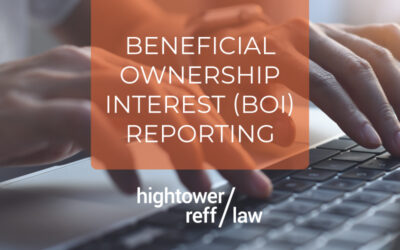A strong attorney-client relationship can benefit you in a multitude of ways. But how is an attorney-client relationship established in a healthy way? We have assembled a list of five things to consider for fostering a healthy relationship with your attorney.
1. Trust
Trust is key in your attorney-client relationship. At your initial consult ask good questions so that you can get comfortable with your attorney. Then ask more questions. You should leave your initial consultation with a feeling of trust such that you’ll be comfortably following your attorney’s advice. There will be many decisions you have to make throughout your case and some will be very difficult.
There may be periods of time throughout your case where you don’t hear from your lawyer for several weeks. If you find yourself thinking, “My lawyer is not communicating with me,” don’t just assume it’s an attorney-client relationship breakdown. You should trust that your lawyer hasn’t forgotten about your case – but, you should also be able to communicate with your lawyer and get a timely update. Especially in divorce cases, there may be some time when your case is very active and there is constant communication between lawyer and client because of a hearing coming up. Conversely, there may be weeks that go by that you don’t hear from your lawyer. This may be because we are waiting for documents to be produced or waiting for a hearing date. We want to be cost effective as well. A good update from your lawyer on what to expect and when is always important.
Finally, you should have trust in the law firm to decide who will do what tasks on your case. While you may have hired a specific lawyer in the firm, there are many ways we can determine the best use of time within our office. Our paralegals may communicate with you about scheduling hearings and deadlines but cannot provide you with legal advice. You may hear from another attorney in the office about a piece of your case because they are actively working on that piece. Your point of contact can change within the office depending on how we have decided to utilize the skills within our office to be most efficient on your case. We ask that you have trust in our ability to identify the best person for each part of your case.
2. Kindness
A good client is kind to each of the people who work in the law firm. We understand, very much, that your emotions are high and most often we don’t take that personally. But we are humans also and it’s not OK to treat your lawyer or any of their staff with unpleasant behavior. Your lawyer is also less likely to be kind to you. Because this relationship should be based on trust, kindness is key both ways. Being kind to the receptionist at a law office is just as important as being kind to the lawyer working on your case. At most law firms, the quickest way to be fired as a client is to be unkind to any of the staff at the firm. They often work just as hard on your case as your lawyer does.
3. Patience
We definitely want you to feel like you’re our only client, but you’re not. A good lawyer will juggle all of their clients with a keen eye on priority. If you are constantly asking for updates with no response or simply can’t get your lawyer to call you back, it might be time to reconsider your attorney-client relationship. But if you call your lawyer on Monday morning and haven’t heard from them by 3:00 on Monday afternoon, that isn’t yet time to fret. Maybe ask to talk with their paralegal; sometimes they are able to help you in the moment or determine if your issue is an emergency that might need to be handled right away. However, in divorces, there are no “legal emergencies.” Anything that rises to the level of an emergency that your lawyer can help with requires us to file something in court. We can’t call the judge on their cell phone and we certainly can’t get anything accomplished outside of business hours. A true emergency must be handled by calling 9-1-1. If something arises on a holiday or weekend, it’s likely you’re not able to get in contact with your lawyer. So having patience until Monday morning is key.
4. Grace
Lawyers are humans too. We also have families, medical emergencies, travel and holiday plans. Just because we’re out of the office doesn’t mean we don’t care about you. Our schedules can be busy with hearings one week and we might be in court all day. Your lawyer should communicate with you about expectations when they are not available but you should not demand their availability. A lawyer that has mastered work life balance will be better suited to represent you so let them enjoy their time off or their ability to take care of family emergencies just as you would.
Lawyers also make mistakes. A good lawyer will own up to a mistake and fix it. But getting mad at them for the mistake doesn’t help. Most mistakes can be fixed but remembering that we all make mistakes will help.
5. An open mind
Be open to working with other professionals: Your lawyer may suggest that you work with a therapist during your divorce. This isn’t because we think you’re crazy, it’s because we care about you and we know that we aren’t the best at providing professional therapy help. Also it is more cost effective for you to work with a mental health professional than to use your lawyer as a therapist. We are not trained therapists; we are good at listening but usually not the best at offering mental health advice. During some difficult parts of your case, you may be asked to make some big decisions and having another professional on your team may be really helpful to consider your options.
For more attorney-client relationship information, check out our “what to expect from your lawyer” series:
Top 5 Things to Know About Phone Calls
Five Key Reasons You Need to Pick Your Battles in Court
The Bill – Five Tips for Controlling Your Legal Fees
This article should not be construed as legal advice. Everyone has a unique case and it’s impossible to provide legal advice without knowing the facts unique to your situation.




